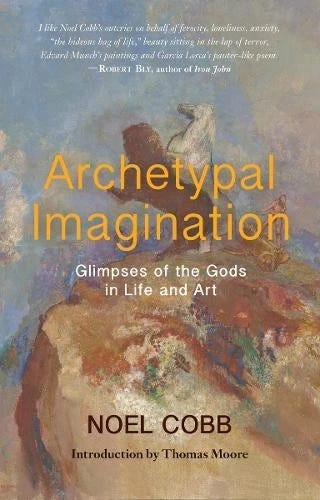Notes Toward a Poetics of Love
“Love runs to meet us even before we start looking.” —MARSILIO FICINO in de Amore.1 1.
Introduction (Allegro vivace)
In this chapter I entertain a claim implicit in archetypal psychology's way of moving into the world—that at least some of us desire a psychology that starts in the processes of imagination and that rests upon a poetic basis of mind,2 that “find[s] its way into poetic speech.”3
If we are going to speak of love—and psychology assumes this capability—we should first of all imagine a poetics of love, for which we must turn to the poets. Not to just any poets, but particularly to those of whom it could truly be said that they belonged to that transhistorical society called by Dante and his companions the Fedeli d'amore, the faithful followers, or servants, of Love. Not the masters of Love, but the servants of Love. Our first and last words will be given to these poets:
Irresistible
and bitter-sweet
once again
that loosener of limbs,
love
Snakily
strikes me down4
says Lady Sappho, who shares with Orpheus5 the legendary distinction of being the first to give Eros his nickname—glucopichron, meaning “sweetlybitter,” or, as we say, “bittersweet.” The poetess thus gives us the opening chords as well as the tonic key of this whole sonata: Eros is irresistible and bittersweet. Definitely not simply the key of C Major; probably neither major nor minor, but something far more archaic and Orphic, a mode on the lyre which is sweetly seductive, bitingly bitter, a mode ambiguous in the extreme. Profound, fateful, theophanic and incomprehensible! I am powerless when he strikes me down, weak in the knees, fluid, loosened from the cramped style of ego and its tight-knit, muscular defenses, floored, struck by an arrow dipped in the metaphorical toxins of archetypal longing. The key, then, of this Geminian sonata in erotic poetics is a scale, or ladder, which ascends from its darkest, most basic tone, through subtle and rhapsodic oscillations to its highest and most celestial, to that which reveals itself to be the same but different, transformed into a dimension of another order. —a mirror image whichever way you happen to look at it. As above, so below.6
In other words, an octave may be played beginning at either end. With an exquisite sense of paradox the Greeks expressed this in their word for the highest-sounding string on the lyre—nete—which means “lowest.” And mirroring this reversal, they named their lowest-sounding string hypate, which means “the highest.” Why? The high note, nete, was the string closest to the performer. The bass note of the lyre, the lowest, was furthest away from the performer and therefore the “highest.” In a classic move of archetypal epistrophé, nete was given to the Moon, hypate to Saturn.7 We may begin with either the Lunatic or the Saturnian, the bitter or the sweet, the agony or the ecstasy, the earthly or the heavenly. In the end it doesn't matter. Gloria duplex! What matters is what kind of music we make.




